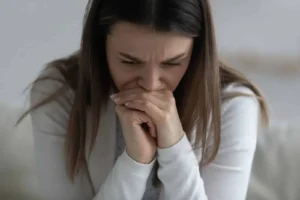Did you know that sometimes substances like drugs or alcohol can cause symptoms that look just like mental health issues? This is called a substance-induced disorder, and it can be really confusing and tough to handle.
In this blog, we’re going to explain what substance-induced disorders are, the different types that exist, and how they affect people. We’ll also share some effective ways to treat these disorders. By learning about the signs and getting the right help, anyone dealing with these challenges can start to feel better.
Whether it’s for you or someone you care about, this guide will help you understand these disorders better and show you how to take positive steps toward recovery. Let’s dive in and find out more about managing and overcoming substance-induced disorders.
Contents
Understanding Substance-Induced Disorders
 Substance-induced disorders are a category of conditions where the use of drugs, alcohol, or even medication leads to psychiatric symptoms that closely resemble disorders like depression, anxiety, or psychosis. These symptoms can arise during intoxication or withdrawal and may persist even after the substance’s effects have worn off.
Substance-induced disorders are a category of conditions where the use of drugs, alcohol, or even medication leads to psychiatric symptoms that closely resemble disorders like depression, anxiety, or psychosis. These symptoms can arise during intoxication or withdrawal and may persist even after the substance’s effects have worn off.
How They Differ from Other Substance-Related Disorders?
Unlike primary mental health disorders that develop independently, substance-induced disorders are directly caused by the abuse of substances. This is a key distinction because the psychiatric symptoms are the direct result of substance intoxication or withdrawal, not an underlying mental health issue that exists on its own.
Understanding substance-induced disorders is crucial for effective treatment, as it helps differentiate between symptoms caused by substance use and those stemming from other mental health conditions. This distinction is essential for providing the correct interventions and support needed to help individuals recover effectively and regain their overall well-being.
Common Types of Substance-Induced Disorders

Substance-induced disorders vary widely, depending on the substances involved and the reactions they trigger in the body. Here are some of the most common types of substance-induced disorders, along with the symptoms associated with each:
Substance-Induced Psychotic Disorder
- Symptoms: Hallucinations (seeing or hearing things that aren’t there), delusions (false beliefs about what is happening or who one is), severe paranoia (irrational distrust of others).
- Common Substances: This disorder can be caused by high consumption of alcohol, cannabis, hallucinogens like LSD, or stimulants such as methamphetamine and cocaine.
Substance-Induced Mood Disorder
- Symptoms: Profound sadness or depression, euphoria or exaggerated feelings of well-being, rapid and unpredictable mood swings.
- Common Substances: Alcohol, steroids, stimulants, and depressants can all lead to mood disorders. Withdrawal from drugs like cocaine and amphetamines can also trigger depressive symptoms.
Substance-Induced Anxiety Disorder
- Symptoms: Panic attacks, obsessive-compulsive behaviors (repeated, unwanted thoughts or compulsive actions), generalized anxiety, extreme worry not tied to any specific cause.
- Common Substances: Caffeine, cannabis, hallucinogens, and withdrawal from various drugs, including alcohol and sedatives, can induce significant anxiety symptoms.
Substance-Induced Sleep Disorder
- Symptoms: Insomnia, excessively disturbed sleep patterns, hypersomnia (sleeping too much), nightmares.
- Common Substances: Stimulants such as caffeine and amphetamines are known to cause insomnia, while alcohol and sedatives might lead to hypersomnia or interrupted sleep cycles.
Substance-Induced Sexual Dysfunction
- Symptoms: Decreased sexual desire, failure to achieve arousal, inability to reach orgasm.
- Common Substances: Alcohol, opiates, certain prescription medications like antidepressants and blood pressure drugs can affect sexual performance and desire.
Understanding these types, and their symptoms, helps patients to pinpoint the cause of symptoms and address the underlying issues related to substance use and its effects on mental health.
Effects on Health and Wellbeing
Substance-induced disorders can have profound impacts on an individual’s health and overall wellbeing, both in the short-term and long-term. These effects are not only psychological but can also be physical, affecting nearly every aspect of a person’s life.
- heightened anxiety
- mood swings
- psychotic episodes
- changes in appetite
- sleep disturbances
- motor coordination impairment
- acute physiological reactions like increased heart rate or blood pressure
- liver damage
- heart disease
- neurological damage
- other vital organ failures
- job loss
- financial instability
- social isolation
- breakdown in family relationships
Understanding these impacts is crucial for grasping the seriousness of substance-induced disorders and the necessity for effective, timely intervention. Effective treatment and support systems are essential for mitigating these effects and helping individuals rebuild their health and lives.
Treatment Options for Substance-Induced Disorders
Managing and recovering from substance-induced disorders involves a comprehensive approach that includes various treatment strategies. These are designed to address both the immediate effects of substance use and the underlying psychiatric symptoms that have been induced. Here’s a closer look at the effective treatment options:
Detoxification

- Overview: Detoxification is the first critical step in treating substance-induced disorders, involving the safe elimination of substances from the body under medical supervision.
- Purpose: This process helps manage withdrawal symptoms, which can be severe depending on the substance and duration of use. It sets the stage for further therapeutic interventions by stabilizing the individual physically.
Rehabilitation Programs
- Overview: Rehabilitation programs can be inpatient or outpatient and are designed to help individuals overcome their dependence on substances.
- Purpose: These programs provide structured treatment environments where individuals receive intensive therapy and support to address both addiction and any co-occurring mental health issues, such as those caused by substance use.
Medication Management
- Overview: Medications may be used to treat withdrawal symptoms, prevent relapse, or manage any co-occurring mental health disorders like anxiety or depression that have been exacerbated by substance use.
- Purpose: Proper medication management can stabilize mood swings, reduce cravings, and help address the brain chemistry imbalances caused by prolonged substance use.
Psychological Therapies

- Cognitive-Behavioral Therapy (CBT): CBT is particularly effective in helping individuals develop coping strategies to deal with triggers that may lead to substance use and manage the behaviors associated with substance-induced disorders.
- Purpose: CBT and other therapeutic modalities like Dialectical Behavior Therapy (DBT) or Motivational Interviewing (MI) focus on changing unhelpful cognitive distortions and behaviors to improve emotional regulation and develop healthier ways of coping with stress and anxiety.
Support Groups
- Overview: Support groups such as Alcoholics Anonymous (AA) or Narcotics Anonymous (NA) provide ongoing community support and a network of peers who share similar experiences and challenges.
- Purpose: These groups are crucial for maintaining long-term sobriety and mental health stability, offering a platform for sharing experiences and gaining support throughout the recovery process.
Integrated Treatment Approaches
- Overview: For those with dual diagnoses or complex cases where substance use has induced severe psychiatric symptoms, integrated treatment approaches that address all aspects of an individual’s health are crucial.
- Purpose: These approaches ensure that treatment for substance use and any resultant psychiatric symptoms is coordinated, which enhances the effectiveness of the recovery process and reduces the risk of relapse.
Each of these treatment options plays a vital role in the recovery journey from substance-induced disorders, helping individuals regain control over their lives and achieve long-term health and wellness.
Conclusion
So, if you find yourself struggling with addiction or facing the challenges of a substance-induced disorder, remember that you’re not alone, and help is available. At QuitMantra, we are dedicated to providing support and expert guidance to help you overcome these obstacles.
Our team of deaddiction experts is equipped with the knowledge and tools necessary to help you navigate the complexities of recovery.
Don’t let addiction or the effects of substance-induced disorders hold you back. Visit our website today and book your session with one of our deaddiction experts. Take the first step towards a healthier and more fulfilling future. We at QuitMantra are here to help you achieve lasting recovery.

 It’s important to understand the distinction between simply using substances and having a substance-induced disorder, as they affect health and daily life quite differently.
It’s important to understand the distinction between simply using substances and having a substance-induced disorder, as they affect health and daily life quite differently.